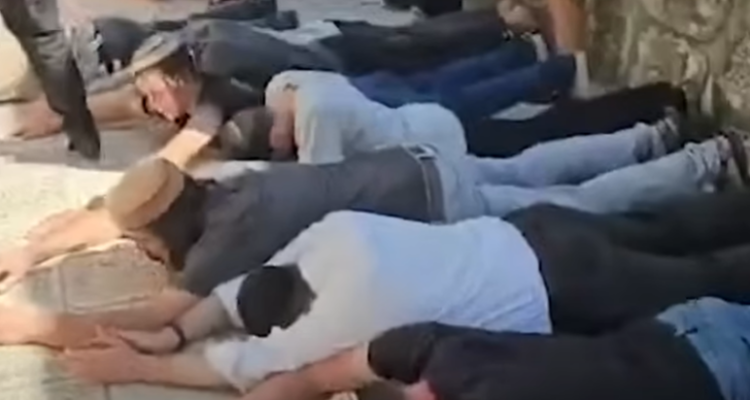Israeli Prime Minister Benjamin Netanyahu insists the status quo at the Temple Mount forbidding open Jewish prayer ‘has not changed.’
By Vered Weiss, World Israel News
Although open prayer, including prostration, was not permitted for Jewish visitors of the Temple Mount in Jerusalem for decades for fear of offending the local Arab population, it is now described as routine.
National Security Minister Itamar Ben Gvir, who has always supported open Jewish prayer at the Temple Mount, prostrated at the Temple Mount and encouraged others to do the same to commemorate the 9th of Av (this year, August 13th), a day of mourning for the destruction of the Temple in Jerusalem.
As National Security Minister, Ben Gvir has told the police not to enforce former rules that would have required them to escort away Jews who prostrated on the Temple Mount or engaged in open prayer.
Israeli Prime Minister Benjamin Netanyahu has sought to downplay the increased open Jewish prayer at the Temple Mount by insisting “the status quo has not changed.”
The development does not surprise some activists, who have noted that open yet discreet prayer has been permitted at the Temple Mount since 2018 when Gilad Erdan was police minister.
However, visitors have gone beyond more “discreet” forms of worship and are seen prostrating on the Temple Mount and singing, dancing, and praying out loud.
Rabbi Yitzhak Brand, a long-time pro-prayer activist, unusual since most ultra-orthodox Jews oppose prayer at the Temple Mount, told worshippers, “We must give thanks to God that we have now merited greater closeness to God. Prostration is already a special form of worship on the Temple Mount and the site of the Temple, and this is another stage in the redemption.”
Speaking on Army Radio, Ben Gvir said, “The policies on the Temple Mount allow prayer, period. You are allowed to pray; preventing you from praying is illegal.”
Asked if he would put a synagogue on the site if he could, and he answered, “Yes, yes, yes, yes.”
Defense Minister Yoav Gallant criticized the development, fearing it would negatively impact security and lead to clashes with Palestinians.
He said, “Ben Gvir’s actions endanger Israel’s national security and its international standing.”
Ben Gvir responded by accusing Gallant of “bowing to Hamas and dragging the State of Israel into a reckless deal,” referring to the hostage-ceasefire deal that Hamas has rejected.





